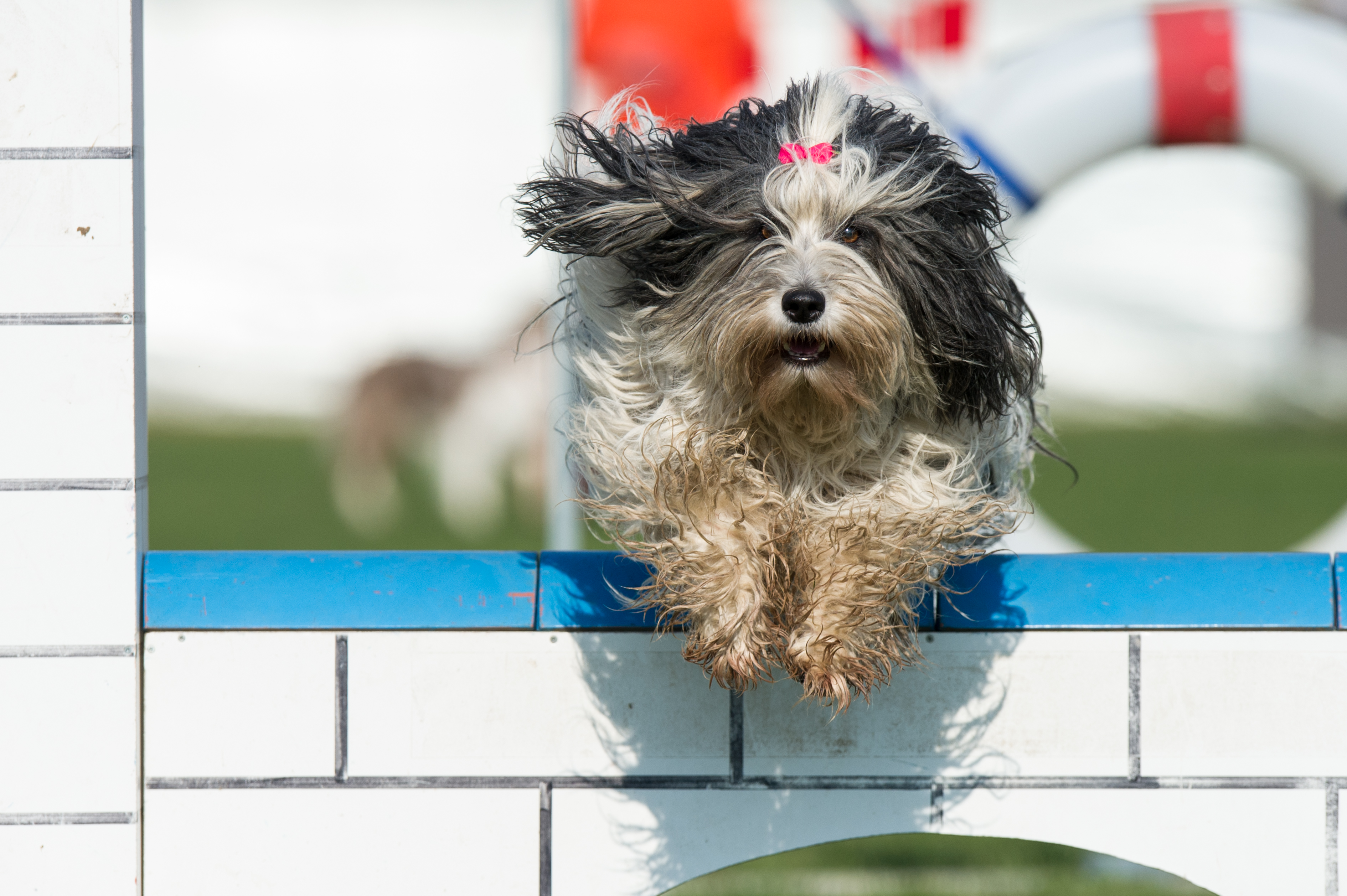Senior Health Care: Working Together With
Your Family Vet
Your veterinarian will ask you a series of
questions regarding any changes in your
PON's activity and behavior during an annual
senior health exam. Your veterinarian will
also conduct a complete examination of all
of your PON's body systems. Laboratory
testing is also an essential component of
the senior exam. If you notice changes in
vision, hearing and general energy levels,
this is the time to report these changes.
Veterinarians depend on laboratory results
to help determine your PON's health. When
your PON is healthy, laboratory tests
provide a means to determine baseline”
values. When your PON is ill, your vet is
able to compare the “baseline” values and
the current values. Subtle changes in these
laboratory test results, even in the
outwardly healthy dog, may signal the
presence of an underlying disease. Lab tests
usually include: blood count, urinalysis,
blood chemistry and parasite evaluation.
What are common
senior PON health issues ?
Diabetes
Diabetes can be triggered from a wide range
of causes including viruses, chronic
pancreatitis, chronic small bowel
inflammation, obesity, hyperadrenocorticism
(Cushings) and long-term use of progesterone
or steroids and of course, diet. An overload
of carbohydrates, especially poor quality,
which is no longer thought to be
biologically appropriate, may contribute to
many diseases including pancreatitis and
diabetes. A minimal or moderate grain
content is recommended for senior PONS.
Grains should be whole and unprocessed.
Diet concerns
For many years, a very restricted-protein
diet was recommended for senior dogs as a
preventive or management measure for kidney
problems. More current research has
determined that it is the quality rather
than the quantity of protein that is most
important. It is best to avoid low-quality
dog foods which are composed primarily of
meat by-products including hide, hair,
feathers and other unwholesome components
that are difficult for the kidneys to
process. Furthermore, low-end kibbles
contain large amounts of chemical
preservatives that load a senior dog’s
system with toxins and place an additional
burden on an aging liver and excretory
system. High quality raw food, grain-free
kibble and home cooked diets will extend the
life of senior PONS.
Arthritis
Arthritis and joint problems may be managed
with an appropriate exercise regime
including gentle walking and swimming, to
help maintain mobility. High quality dog
supplements (fish oil, flax seed oil) can
also provide relief without the toxicity and
side effects of prescription medication.
Always research adverse effects of
pharmaceutical medications.
Weight Management
Obesity in dogs can be prevented or treated
with diet and exercise. Sudden unexpected
weight gain or loss should always be
investigated by your vet to rule out an
underlying health problem, involving thyroid
complications and other serious diseases.
Conditions stemming from obesity are rapidly
becoming the number one health problem for
senior dogs.
Dental Issues
Dental problems can generally be prevented
by regular cleaning. Recreational raw beef
marrow bones are an essential way to keep
the teeth clean, providing your veterinarian
considers these appropriate for your senior
(sometimes vets prefer to stay away from
raw, for the very young and old or immune
compromised pets). Always consult your vet.
Providing dog dental care at home may
improve a senior dog’s over all health if
there is tartar build-up. Home care may
include dental wipes, durable chew toys or
even a simple baking soda & water paste
applied to the teeth can all form part of
your senior’s dental care management.
Preventive Measures Nutrition
Many older PONS benefit from a high fiber,
reduced calorie diet. As mentioned above,
obesity is often the result of reduced
exercise and overfeeding; and is a risk
factor for diabetes and heart disease. Older
PONS often have different nutritional
requirements, and it’s a good idea to check
with your vet about switching to a high
quality, age appropriate diet. Many senior
PONS benefit from a small amount of
plain yogurt added to their diet to help
keep the healthy flora in the intestinal
tract in balance. A high quality fish oil is
also a great addition to the diet and helps
to keep your senior PON's skin and coat
healthy.
Exercise for Senior PONS
Exercise is another aspect of preventive
geriatric care for your PON. You should
definitely keep your PON active as he grows
older. If he is cooped up and inactive
for most of the day, his body will
deteriorate much more quickly. Jogging with
your arthritic PON may not be appropriate,
but swimming and other low-impact activities
are vital for PONS with joint pain and
arthritis. Keeping your PON active both
mentally and physically helps your PON stay
in top condition.
As a general guide for senior healthcare and
also for younger PONS, remember to work with
your vet on routine blood-work and
urinalysis to create a useful vision of your
PON's over all health and to uncover hidden
problems before symptoms become noticed.
Vaccinations should be minimal (titer tests
are useful in determining if most of them
are even necessary). Flea and tick
preventives should be used only when needed.
Heartworm prevention is always necessary.
Consult your vet immediately if you notice
any unusual behavior such as excess
drinking, more frequent elimination, weight
change, lameness, lethargy or anything else
that doesn’t seem normal. Take charge of
your senior PON's nutritional needs by
feeding a high quality diet and maintaining
your PON's appropriate weight. Remember
exercise and most of all, offer lots of love
to make sure your senior still feels like a
vital member of your family.
